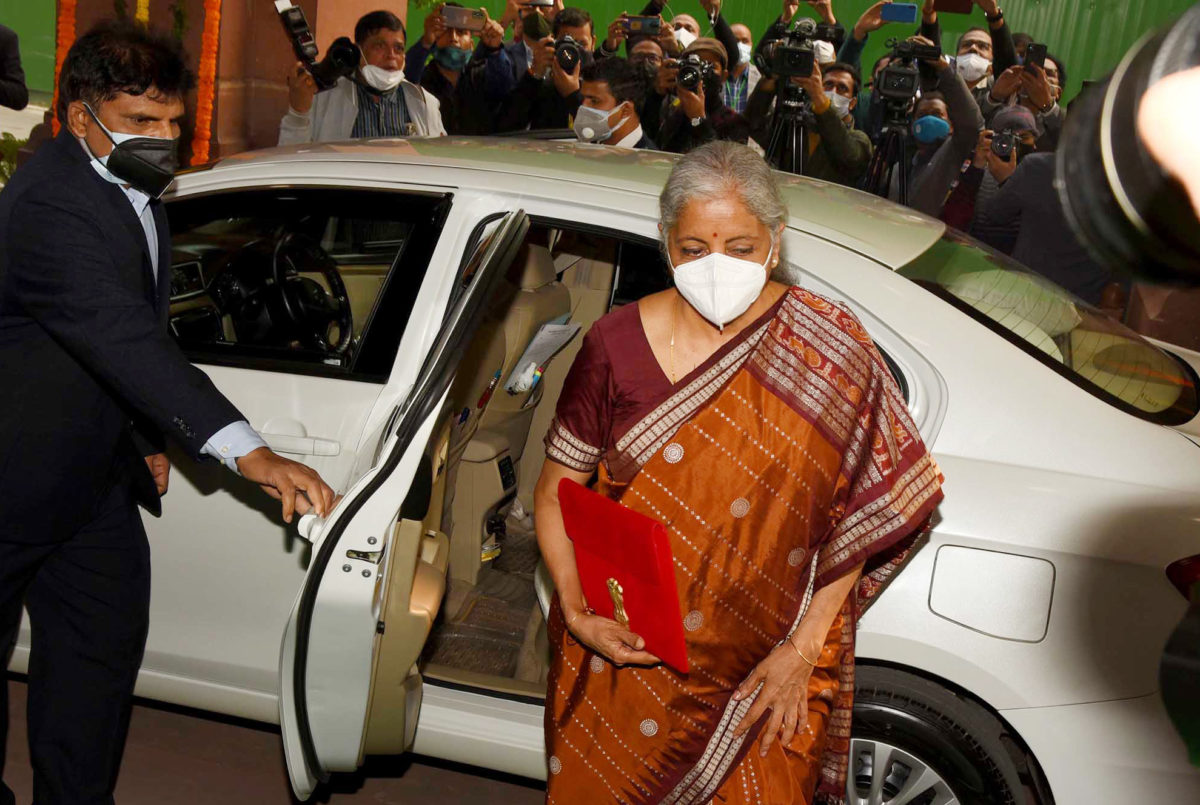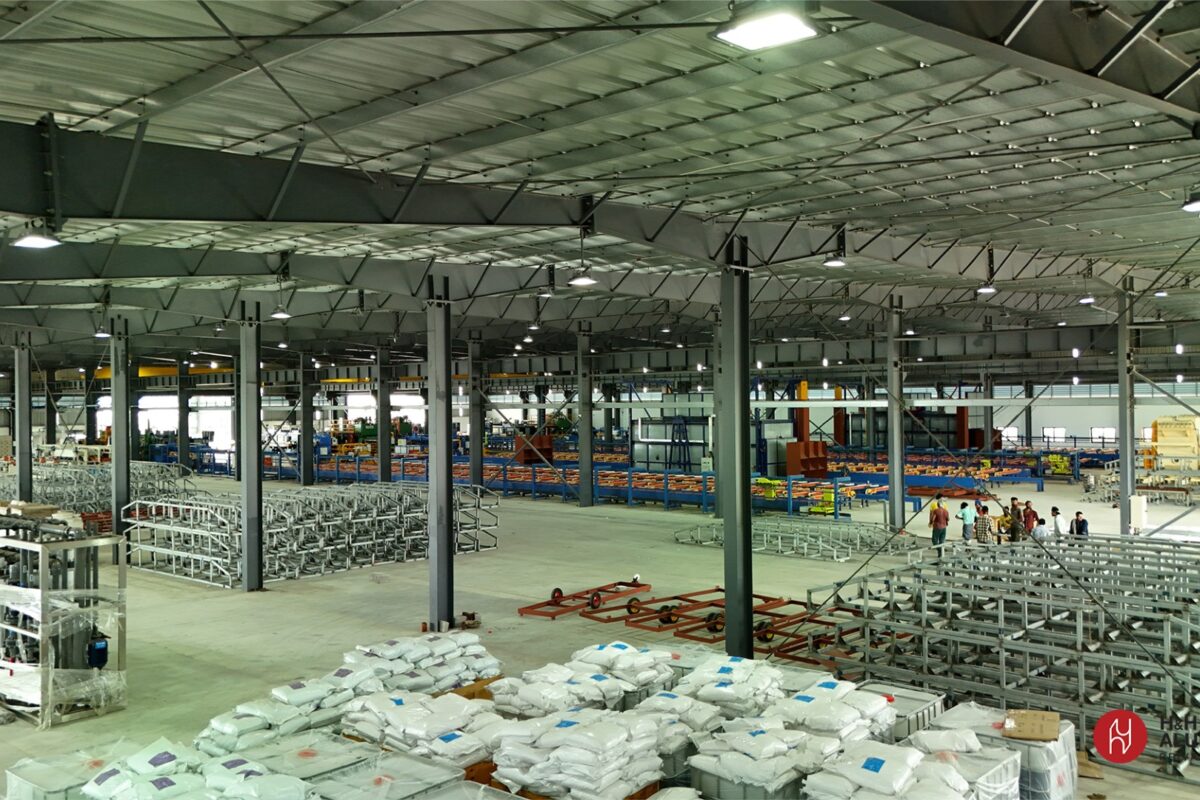The Union Budget has presented the government’s determination to promote domestic solar manufacturing as it includes increased incentives and supportive policies while discouraging imports by introducing customs duties on PV modules and solar cells from April.
Presented today by union finance and corporate affairs minister Nirmala Sitharaman, the budget allocates an additional INR19,500 crore (US$2,602 million) to the production-linked incentive (PLI) scheme which offers funding support to bidders who commit to setting up fabs to produce everything from polysilicon to PV modules on Indian soil.
“The move is aimed to facilitate domestic manufacturing for the nation’s ambitious goal of 280GW of installed solar capacity by 2030,” said Sitharaman.
Tax deadline extension
The minister said newly incorporated manufacturing companies will have an extra year to be eligible for a 15% concessional tax rate before the start of production, with the deadline extended to the end of March 2024.
Solar manufacturers will benefit from the removal of the anti-dumping and countervailing duties applied to foreign-made stainless steel, coated steel products, bars of alloy steel, and high-speed steel, with the government citing the high price of the metals on the international market.
Developers who used imported solar cells and modules will have to brace themselves for the imposition of a 40% basic customs duty on non-Indian solar modules, and a 25% rate on cells from April 1, in response to demands from Indian solar manufacturers.
Green bonds
Finance minister Sitharaman also announced the launch of sovereign green bonds.
The government will support the development of domestic capacity in green energy generation and clean mobility by way of “supportive policies, light-touch regulations, and facilitative actions,” said the minister, presenting the budget. Government contributions would be made to these “sunrise opportunities,” said Sitharaman, without offering further specifics.
To help foster e-mobility, the minister said energy storage projects would enjoy the benefits of being designated as infrastructure assets – including access to cheap finance – and the government would also establish special mobility zones with zero fossil-fuel and battery swapping policies. “Considering the constraint of space in urban areas for setting up charging stations at scale, a battery swapping policy will be brought out and interoperability standards will be formulated,” said Sitharaman. “The private sector will be encouraged to develop sustainable and innovative business models for “battery or energy as a service.” This will improve efficiency in the EV [electric vehicle] ecosystem.”
Developer reaction
Sumant Sinha, chairman and chief executive of Nasdaq-listed Indian renewables developer ReNew Power hailed the budget as climate-friendly. “The budget lays the groundwork for India’s ambition to become a net-zero country by 2070,” he said. “The government has very firmly put [the] energy transition and clean energy at the heart of India’s economic growth and looks to address some of the most challenging aspects of this transition.
“The additional [production-linked incentive scheme] outlay of INR19,500 crore for solar manufacturing will help the renewable[s] industry expand rapidly. We expect IREDA [state body the Indian Renewable Energy Development Agency], which has been capitalized recently, to move fast and issue letters of award to companies that have bid under the PLI scheme.”
The PLI tender to support the gigawatt scale manufacture of high-efficiency solar modules received bids for 54.5GW of solar equipment annual manufacturing capacity last year, with several bidders put on the waiting list. Today’s additional budget allocation will ensure more manufacturers are supported by the scheme.
Duties lifted
Sinha said the revocation of anti-dumping duty on steel will reduce the cost of modules considerably and tie in well with incentives for locally incorporated manufacturing entities, which will be able to start manufacturing by March 31, 2024. The definition of grid storage as infrastructure assets will help mobility start-ups and independent power providers explore low-cost financing, he added.
The clean power executive also welcomed the budget announcement on sovereign green bonds, saying they will help mobilize finance for electricity distribution companies as well as for clean energy investors.
Vineet Mittal, chairman of fellow renewables developer Avaada Group, said the Union Budget will make it easier to invest in Indian clean power, stating: “The industry was eagerly waiting for these reforms to increase its competitiveness and take the growth of the sector to the next level and become self-reliant in renewable energy. The government has shown its commitment to become self-reliant in module manufacturing and battery storage.”
Manufacturers’ take
Gyanesh Chaudhary, vice chairman and managing director of module manufacturer Vikram Solar welcomed the additional PLI allocation of INR19,500 crore for those companies put on the waiting list to benefit from state assistance.
“The sovereign green bonds will boost green infrastructure development which will help in meeting India’s carbon emission reduction targets,” he added. “Green bonds will also enable an international yield curve for Indian corporates, leading to better pricing for bonds. The battery-swapping policy, with interoperability standards, will boost the electric vehicle ecosystem.”
Chaudhary told pv magazine he appreciated the government’s focus on strengthening the domestic solar industry by notifying the basic customs duties on solar products. “We are confident, with the implementation and roll-out of the measures announced in Budget 2022, we will move closer towards realizing the aatmanirbhar Bharat vision in the solar sector, and India’s energy security through green power,” he said.
Reasons to cheer
Bharat Bhut, co-founder and director of Gujarati PV manufacturer Goldi Solar said: “Budget 2022 has given indigenous manufacturers several reasons to cheer. Implementing 40% BCD [basic customs duty] on solar modules and the additional allocation of Rs19,500 crore for PLI for solar PV module manufacturing, will ensure the growth of the entire domestic manufacturing ecosystem.”
The Goldi Solar director, though, said the application criteria applied to the PLI program should be amended so all sizes of business could participate.
“All of these measures will result in a more robust domestic module supply, increased confidence in Indian solar modules, and reduced reliance on imports while furthering our aim to achieve an atmanirbhar Bharat. As a next step, the government needs to define measures to be taken in the R&D space to foster innovation and help companies stay ahead of the technology curve,” he said.
This content is protected by copyright and may not be reused. If you want to cooperate with us and would like to reuse some of our content, please contact: editors@pv-magazine.com.









Import Duty on Solar Panels aka Made in China PV Panels/Cells is the way forward for Bharat to launch its (nascent) PV Panel Industry (nascent.. because Bharat needs a 500GW/yr PV Industry to Elimibate Pollution by 2050… with a 15TW PCV Sysyem uding AgriVoltaics…. to meet ALL its Energy Needs by 2050.. or earlier the better… remember Pollution kills 6,000 Daily and requires 500Million to seek medical intervention from 35Million DALY of Suffering due to Pollution).
Better still is for PV Panel Manufacturers to Voluntarily BOYCOTT MADE IN CHINA.. for a more permanent Solution..
Keep the above Duties alive.. I say make them even higher why not 50..60% etc… and check every Container by stripping out and testing every PV Panel for conformance to Performance (like China has being doing for decades for impirts) … the cheaters will disappear ….
Those who forget …. every Rs of import helps China arm its soldiers with bullets.. targeted at Bharat’s Jawans… always remember this…